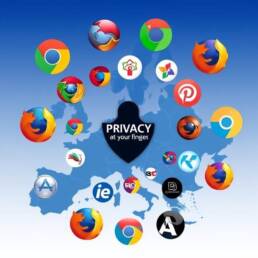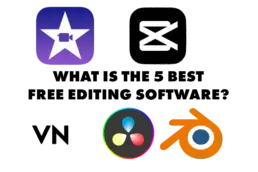De-Americanize Your Digital Life: A Practical Guide to Switching to EU Tech

Consumer Tech Swaps: Practical Steps to De-Americanisation
The path to digital independence begins with the everyday tools we use. Here are some practical swaps to consider:
Social Media Alternatives: Reclaiming Our Digital Discourse
Instead of the chaotic town square of X (formerly Twitter), imagine a more civilized pub crawl across various EU-hosted Mastodon servers, where the discourse is (mostly) free from tangerine-hued trolls.
Mastodon, originating in Germany, operates on a decentralized model, empowering users to choose communities aligned with their interests and values, often on servers located within the EU. This federated structure not only offers greater user control and the potential for more effective moderation, but also reinforces the principle of user choice, a key tenet of digital independence.
For those yearning to share photos of their meticulously crafted smørrebrød without feeding Meta’s insatiable data maw and enduring their exploding-watermelon reels, Pixelfed (with roots in Canada and Germany) presents a compelling alternative. Operating on the same decentralized Fediverse as Mastodon, Pixelfed prioritizes privacy and offers a refreshing chronological feed, a welcome departure from the often manipulative algorithms that govern Instagram.
These platforms offer a more user-centric approach to social media, prioritizing privacy and community over profit and data extraction.
When considering social media, it’s important to look at Mastodon vs X (formerly Twitter): Which is better for privacy? and to understand the nuances of decentralized social networks.
The Power of Open Source
Open-source software, like the VLC media player, provides transparency as its code is publicly accessible, allowing anyone to examine how it works, audit it for security vulnerabilities, and even contribute to its improvement. This fosters community-driven development, often resulting in software that is more secure, customizable, and free from hidden agendas. Furthermore, open-source projects are generally not tied to the commercial interests of a single corporation, which can align better with the goals of digital independence and user empowerment. This is particularly relevant for video editors who often rely on a collaborative and adaptable software environment.

Browser Choices: Privacy at Your Fingertips
Trade the data-hoarding vacuum cleaner that is Chrome for the refined privacy of LibreWolf.
This EU-developed (as a fork of Firefox) browser prioritizes user privacy by stripping away telemetry and data collection features common in mainstream browsers. While Firefox itself boasts strong privacy credentials and has European heritage through Mozilla’s funding, LibreWolf elevates privacy to its core mission. LibreWolf removes all telemetry and data collection features and uses privacy-focused search engines by default, making it a strong choice for privacy-conscious users. For those concerned about online tracking, the choice between LibreWolf vs Chrome: Choosing the best browser for EU privacy is significant.
Smart Home Options: Local Control and Enhanced Privacy
Swap the ever-listening Alexa for the sophisticated and locally controlled Home Assistant. This open-source platform, with a strong European community, empowers users to manage their smart home devices locally, without the need for data to be processed on servers controlled by US tech giants. This approach significantly enhances privacy and reduces the risk of sensitive data leaving EU jurisdiction, as all data processing occurs within the user’s local network. Users gain Home Assistant vs Alexa: Local control for your smart home, enhancing both privacy and control. This means your data stays within your home network, and you’re not reliant on a company’s servers for basic functionality.
Other Consumer Tech Swaps
Search Engines
Instead of relying solely on Google, consider privacy-focused European search engines like Qwant (France), Ecosia (Germany), or SearXNG (EU-based). Ecosia also contributes to environmental sustainability by planting trees with its ad revenue. The debate around Qwant vs Google: Which search engine respects your data? is central to the discussion of online privacy.
For a more private and secure email experience, look to European providers such as Proton Mail (Switzerland) or Mailbox.org (Germany). Proton Mail, founded by scientists at CERN, offers end-to-end encryption. Services like Comparing Proton Mail and Mailbox.org for secure email provide users with crucial alternatives.
Maps and Navigation
Ditch Google Maps for European alternatives like HERE WeGo (Netherlands) or OsmAnd (Netherlands). OsmAnd is based on open-source OpenStreetMap data. Sources and related content
Here are some EU apps to get you started on your journey:
-
Mastodon (Germany): https://joinmastodon.org/ - Decentralized social networking.
-
Nextcloud (Germany): https://nextcloud.com/ - Self-hosted cloud storage.
-
SearXNG (EU-based): https://searxng.org/ - Privacy-respecting meta-search engine.
-
Home Assistant (EU): https://www.home-assistant.io/ - Open-source smart home platform.
-
Proton Mail (Switzerland): https://proton.me/mail - Encrypted email service.
-
LibreWolf (EU): https://librewolf.net/ - Privacy-focused web browser.
-
PeerTube (France): https://joinpeertube.org/ - Decentralized video sharing.
-
Element (UK): https://element.io/ - Secure messaging via Matrix Protocol.
-
DeepL (Germany): https://www.deepl.com/translator - High-quality translation tool.
-
OsmAnd (Netherlands): https://osmand.net/ - Open-source maps and navigation.
-
Blender (Netherlands): https://www.blender.org/ - Open-source 3D creation suite.
-
DaVinci Resolve (Australia with strong EU presence): https://www.blackmagicdesign.com/products/davinciresolve/ - Professional video editing.
-
Audacity (Open Source): https://www.audacityteam.org/ - Audio editor.
-
Ardour (Open Source): https://ardour.org/ - Digital audio workstation.
-
Natron (Open Source): https://natrongithub.github.io/ - Compositing application.
EU Tech Alternatives to US Tech Giants
Embrace Digital Sovereignty with European Solutions
Communication & Social
Mastodon
Decentralized social networking platform similar to Twitter but with better privacy controls
joinmastodon.orgPeerTube
Decentralized video platform that provides an alternative to YouTube
joinpeertube.orgElement
Secure messenger based on the Matrix protocol, alternative to WhatsApp/Slack
element.ioProductivity & Storage
Nextcloud
Self-hosted cloud storage and collaboration platform, alternative to Google Drive
nextcloud.comDeepL
High-quality AI translation tool, alternative to Google Translate
deepl.comBrowsing & Searching
Smart Home
Home Assistant
Open-source smart home platform with focus on privacy
Visit Website →Creative Tools
DaVinci Resolve
Professional video editing & color grading software
Visit Website →Read part 1 Or part 3
Joe Savitch-Lee
Over 20 years in media, having worked on four continents and on countless projects both on location and in a suite. He has excelled in both building/maintaining editing systems and editing them.



